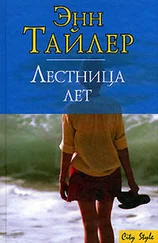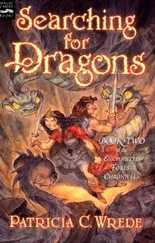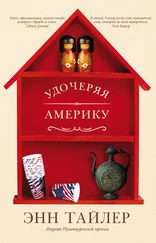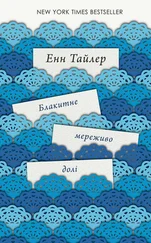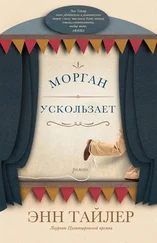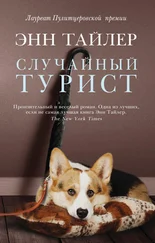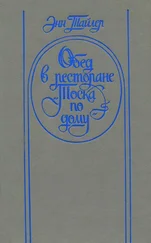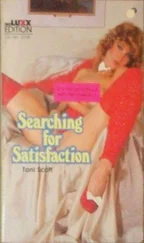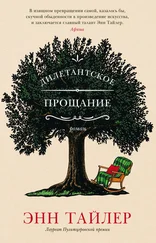At six in the evening Claudia would leave, slamming the door behind her, and Justine’s mother would look at the clock and her fingers would fly to her mouth. “How in the world did the time pass?” she would ask, and she would slide to the edge of the bed and feel for her pink satin slippers. “We can’t let your daddy catch us lazing about like this.” She would put on a navy blue dress with shoulder pads, and cover her rosebud mouth with dark lipstick, turning instantly from pink-and-gold to a heavy, crisply defined stranger like the ones hurrying down the sidewalk five stories below. “Of course my headache hasn’t improved one bit,” she would say. “I’d go back to bed but your daddy would never understand. He doesn’t believe in headaches. He certainly doesn’t believe in going to bed for them. It just is not his custom, I suppose.”
To hear her talk, you would think Sam Mayhew was as different and exotic as an Asian prince, but he was only a small pudgy man with a Baltimore accent.
Then there were days in a row when Justine was not allowed in her mother’s room at all, when she would puzzle and puzzle over what magic password had given her entry before. No one could go in but Claudia, carrying the latest string-tied box from the Parisian Pastry Co. Justine was marooned on a scratchy brocade chair in the living room and the bearded men beneath it were only waiting for her to lower one foot so that they could snatch her by the ankle and drag her down. Even Sam Mayhew’s homecoming could not rouse his wife from bed. “Oh, go away, Sam, let me be, can’t you see a crack is running down in front of my ears?” Sam and Justine ate supper alone, on the gold-rimmed plates that Claudia had laid out in the dining room. “Well, now, Justine, what have you been doing with yourself?” Sam would ask. “Did Claudia take you to the playground? Did you have a nice time on the swings?”
But he would quickly flounder and drown in her blank, astonished stare.
Day after day Justine on her brocade island looked at her mother’s old Books of Knowledge— tattered maroon volumes with brittle pages, the only things she could reach without setting a foot to the floor. She lost herself in a picture of a train heading through outer space. It had been explained to her that this picture demonstrated the impossibility of man’s ever reaching the moon. See how long it would take to cover the distance, even by rail? But to Justine it appeared all too easy, and she felt herself lightening and dwindling and growing dizzy whenever she saw that tiny lone train curving through the endless blackness.
Finally a time would come when she could raise her eyes from a page and find the air parting expectantly to make way for some change; she could always tell when change was coming. And not long afterward the telephone would ring, and Claudia would carry it from the foyer to the bedroom and rouse Justine’s mother to shout long distance to Baltimore. “Hello? Oh, Father! Why are you — did Sam tell you to call me? What? Oh, not too well, I’m afraid. I said, not too well . Everything just seems to be going wrong, I can’t quite . . . ”
Justine would listen carefully, trying to discover exactly what had caused her world to collapse. She heard that her mother’s nerves were acting up, her headaches were ferocious and no doctor could do a thing, the chandelier had fallen smack out of the ceiling, the landlord was impossible, Claudia showed no respect, there had been a very depressing story in the paper Sunday, Justine was turning sulky, Sam was out of town too much, and really it was entirely the fault of the City of Philadelphia. If he had any feeling, if he cared even a little, she knew it was asking a lot but she wished he would come and straighten things out.
He always came. She was his youngest daughter after all and very far from home, the only one of his children to leave the safety of Roland Park. Which was not to say that he approved of her. Oh, no. As soon as he stepped in the door, late that very night, he was curling his mouth downwards at the welter of pastry boxes and her crumb-littered, used-looking bed, and he was telling her outright that she had grown too fat.
“Yes, Father,” Caroline said meekly, and she sat a little straighter and sucked in her stomach.
The next morning, when Justine got up unusually late after an unusually calm, dreamless sleep, she would find the apartment bright with sun and all the curtains open. Claudia was wearing a crisp white scarf and briskly attacking the dust in the cushions. Her mother sat in the dining room fully dressed, eating fresh grapefruit. And in the foyer her grandfather stood at the telephone announcing that he, Judge Peck, would personally drag the landlord through the entire United States judiciary system if that chandelier were not replaced by twelve noon sharp. Then he hung up and cupped Justine’s head with his right hand, which was his way of greeting her. He was a bony man in a three-piece pinstriped suit, with fading hair like aged gardenia petals and a gold wafer of a watch that he let her wind. He had brought her a sack of horehound drops. He always did. Justine was certain that no matter what, even if he had rushed here through fires and floods and train wrecks, he would not forget to stop at Lexington Market first for a sack of horehound drops and he would not fail to cup her head in that considering way of his when he had arrived.
Generally during those visits Sam Mayhew would vanish, or if he did come home he wore a gentle, foolish smile and tried to keep out of the way. At any rate, the grandfather was never there for very long. He was a busy man. He came up over the weekend usually, just long enough to get his daughter to her feet again, and he left Sunday evening. Only once did he come on a working day. That was for Justine. She was supposed to be starting kindergarten, the first time she would ever be away from home alone. She refused to go. She wouldn’t even get dressed. She became very white and sharp-faced and her mother gave in, sensing that there was no use arguing with her. The next morning when Justine awoke her grandfather Peck was standing by her bed carrying her plaid dress, her ruffled underpants with “Tuesday” embroidered on them and her lace-edged socks. He dressed her very slowly and carefully. Justine would have refused even her grandfather but his hands were so thick and clumsy, untying the bow of her nightgown, and when he stopped to pick up her shoes she could see the pink scalp through his thin pale hair. He even did her braids, though not very well. He even sat across from her and waited with perfect patience while she dawdled over breakfast. Then he helped her with her coat and they left, passing her mother, who wrung her hands in the doorway. They went down streets that were bitterly familiar, where she had shopped with her mother in the dear, safe days before school was ever thought of. At a square brick building her grandfather stopped. He pointed out where Claudia would meet her in the afternoon. He cupped her head briefly and then, after some fumbling and rustling, pushed a sack of horehound drops at her and gave her a little nudge in the direction of the brick building. When she had climbed the steps she looked back and found him still waiting there, squinting against the sunlight. Forever after that, the dark, homely, virtuous taste of horehound drops reminded her of the love and sorrow that ached in the back of her throat on that first day in the outside world.
* * *
In summer the leather suitcases would come up in the elevator to be packed, and Justine and her parents would board the evening train to Baltimore. Their arrival was never clear to Justine. She was half asleep, carried off the train and laid in the arms of some white-suited uncle. But when she awoke the next day there she was in Roland Park, all rustling with trees and twittering with birds, in her great-grandmother’s white brick house, and if she went to the window she knew that all the houses within her view belonged to Pecks and so did the fleet of shiny black V-8 Fords lining one side of the street, and all the little blond heads dotting the lawn were Peck cousins waiting for her to come out and play.
Читать дальше

